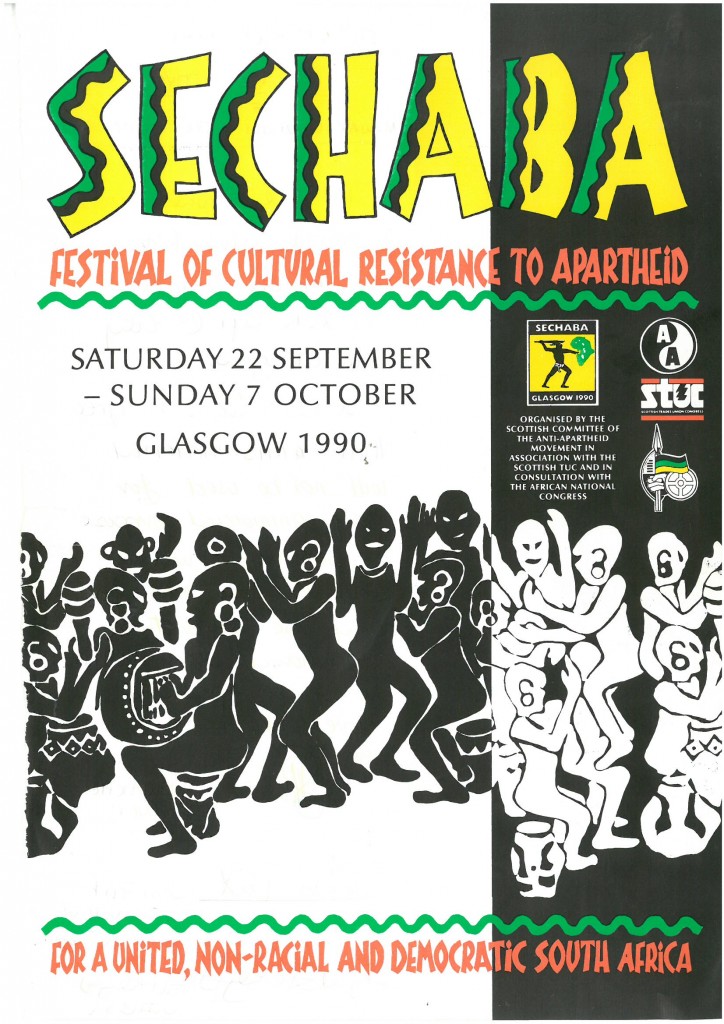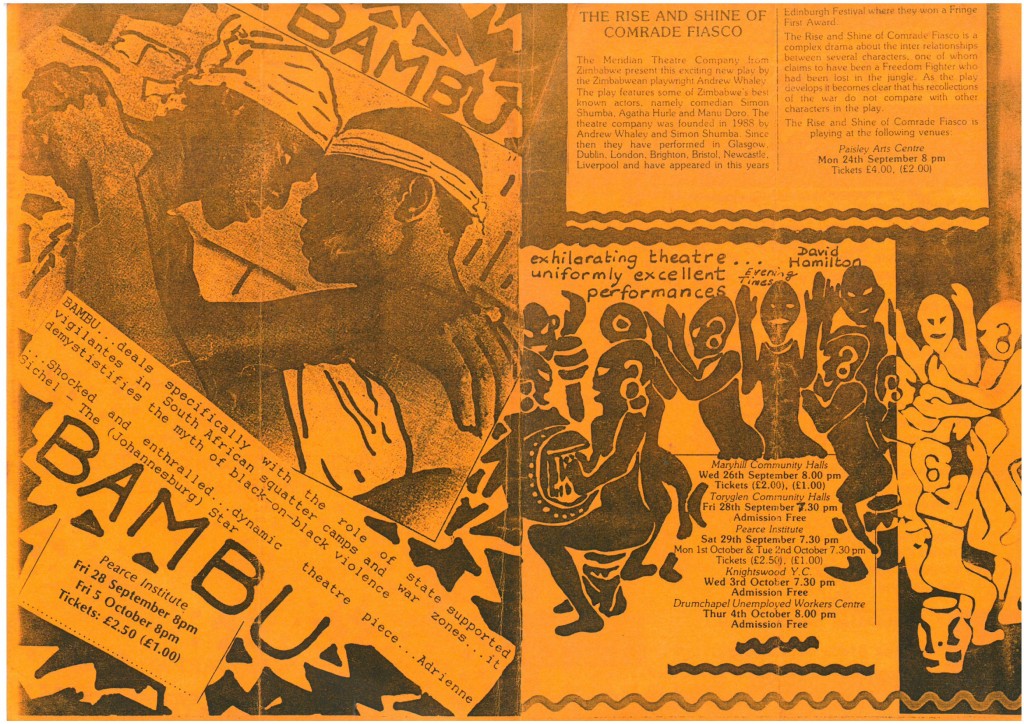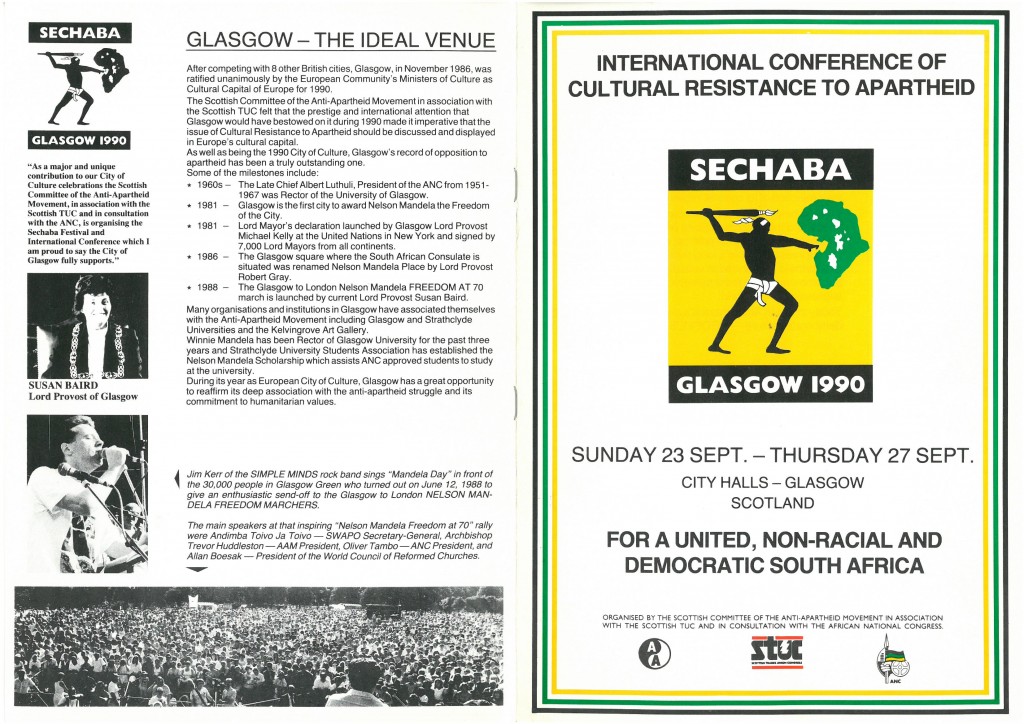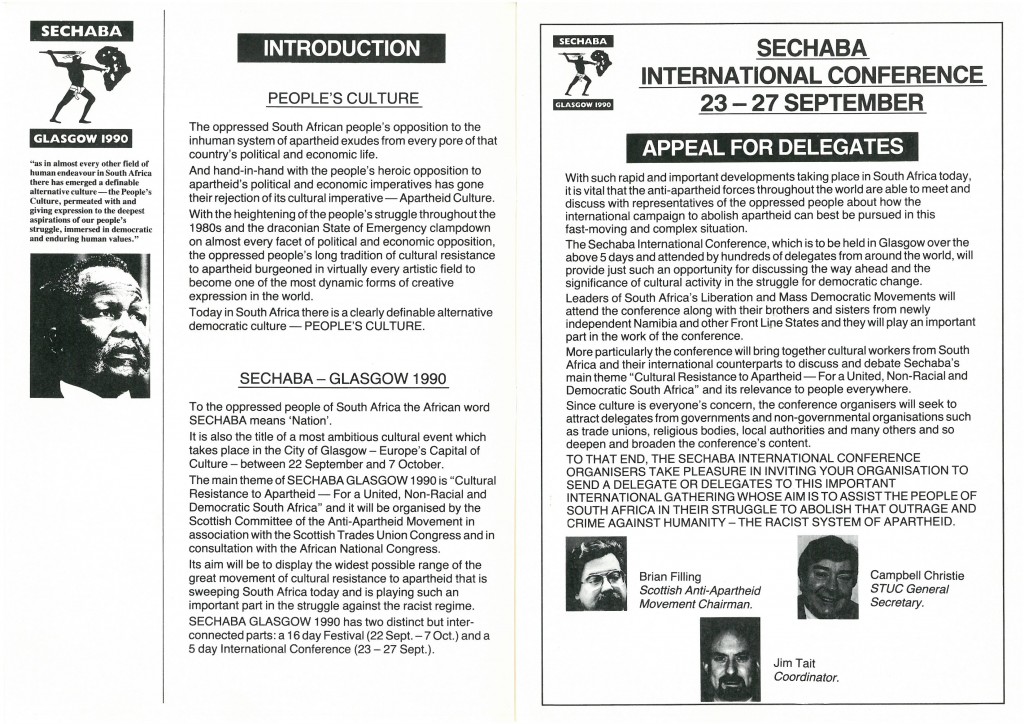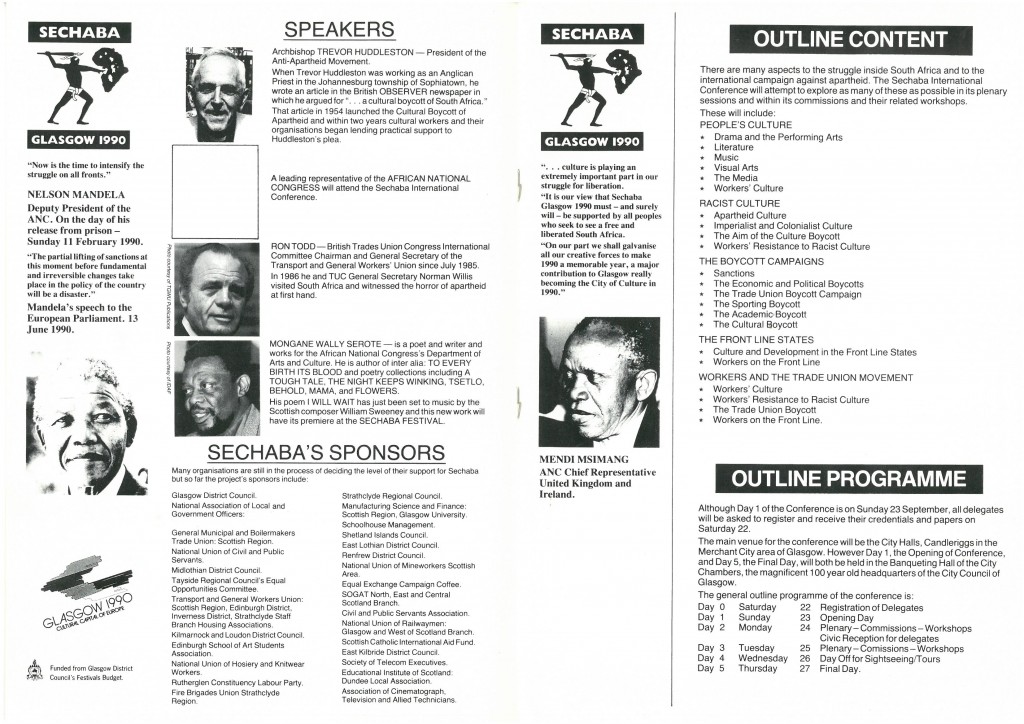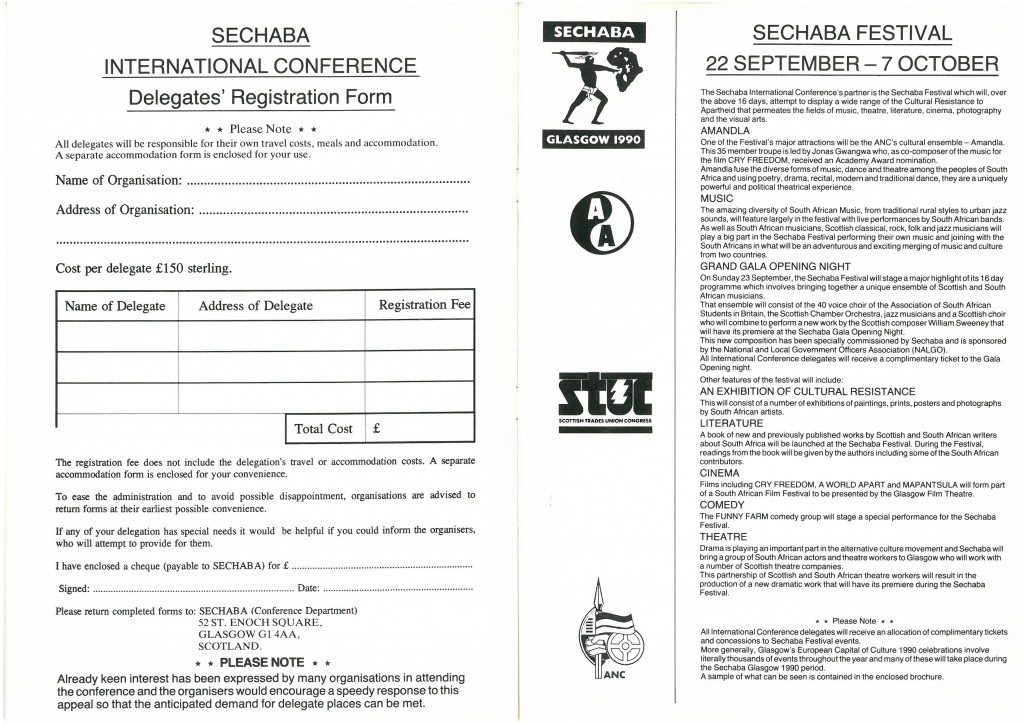‘One culture is that which, while recognising the historical differences of national groups, seeks to build a nation which will bestow on people such knowledge, understanding – a civilisation of co-existence which will result in the eradication of all forms of deprivation and discrimination on whatever basis; the other culture…based on discrimination, oppression, exploitation and divide and rule, by exploiting the differences of national groups in that country and by building a nation dominated by whites.’
Resistance Culture, Transformation and the Expression of Freedom, paper delivered in Glasgow at the Sechaba Festival in 1990, Mongane Wally Serote
The success of the Anti-Apartheid Movement was based on the tireless activities of individuals, groups and nations, uniting across the world because they believed in equality for all, regardless of race, religion, gender or class. Culture acted as the great unifier, with events spanning the arts, showcasing South African/African talent alongside the more familiar and home-grown, proving that awareness raising and activism could be at once enjoyable, exhilarating and hard-hitting.
Over the years the Scottish Committee of the Anti-Apartheid Movement made many cultural contributions through their work, but perhaps the greatest was during 1990 – the year in which Glasgow was made European City of Culture – it was called, Sechaba: Festival and International Conference of Cultural Resistance to Apartheid.
Sechaba ran from 22nd September until 7th October 1990 in Glasgow and was held at multiple venues across the city. The five day conference hosted speakers from all over the world who spoke on ‘Cultural Resistance to Apartheid – For a United, Non-Racial and Democratic South Africa. While the sixteen day festival displayed a variety of ‘People’s Culture’ from a newly commissioned musical work by Bill Sweeney, to South African theatre, to a variety of visual arts and creative writing. A cultural melting pot, the people of Scotland embraced the events of Sechaba and enjoyed them wholeheartedly.
As a nation known for being welcoming, for accepting and integrating peoples from all over the world into our communities without question, Scotland will continue, as it always has, to play its part on a national and international scale, defiant in the aftermath of the EU referendum.
Global community cooperation will always out way splendid isolation.
Julia Wylie, Project Archivist
